

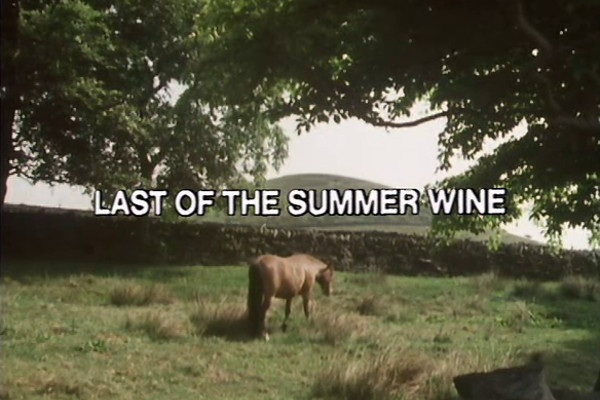
The DVD of the seventh series can be ordered online from Amazon. Please join me as I rank the episodes from worst to best...
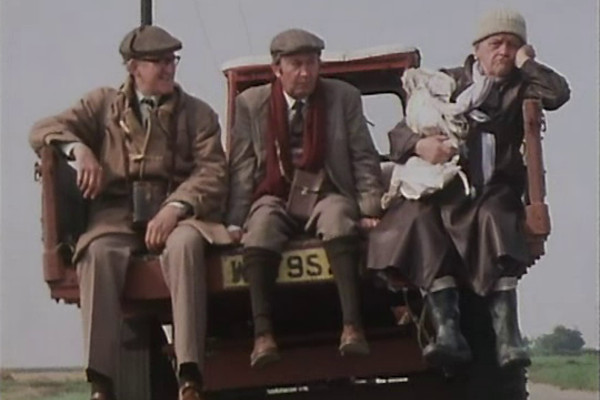
Sydney Lotterby returned for this 1982 Christmas special, the second of three episodes that actually aired on Christmas Day. Lotterby would remain with the programme for the whole of the seventh series, before Alan JW Bell took over for good. Generally series seven marked, if not a full return to form, then something of a reversal of the show's declining quality during the last one or two series before it.
As a Christmas special, All Mod Conned is very predictable stuff, with lots of "instant reverses" - when Foggy hires a cottage for them to stay in over the festive period, even the most credulous audience member must have realised it wouldn't go as planned. There's a rare topical reference to the Falklands War, and some dodgy moments where the women Compo molests (Nora and Ivy) start to enjoy it, but generally this is Last of the Summer Wine by numbers... generally harmless, but also genuinely forgettable.
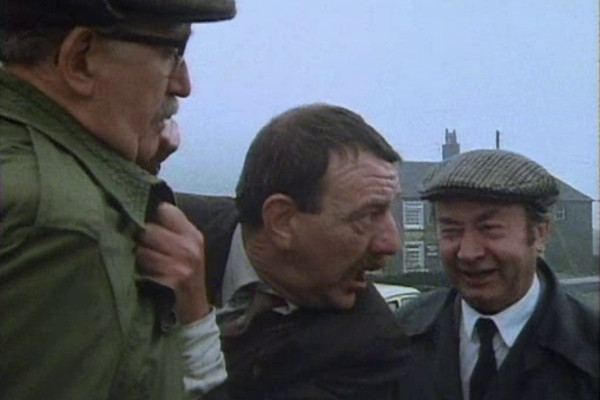
Not to be confused with series three's Cheering Up Gordon, Cheering Up Ludovic presents a character so unnerving that even the audience don't seem to know how to react. Bryan Pringle plays the titular Ludovic as broad as you'd expect from the programme's more extreme era, but there's a serious hint of menace from a crying drunk who has bouts of temper.
Rather than the trio meeting a familiar eccentric, it's more like they've been hijacked by someone like Yosser Hughes from Boys from the Blackstuff. (Coincidentally, the episode aired just under four months after the Yosser-centred episode of Blackstuff, or just over three years from the original The Blackstuff play).
One of the most grating aspects of Last of the Summer Wine can be the incredibly vocal studio audience, but here their absence is felt, as most of the runtime plays only to polite chuckles, and often bafflement, before ending with a very meek conclusion. Pringle's Ludovic never appeared in the series again, and a silenced audience may be the main reason why.
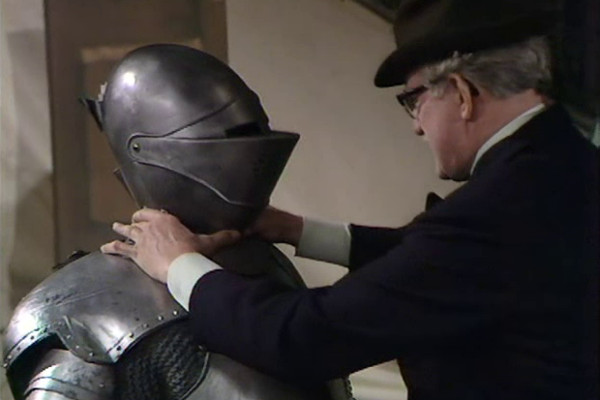
An episode where the trio, under Foggy's assistance, offer to help put on a church show... which then never happens, but instead descends into more "Bill Owen in funny costumes" humour. Yet what makes series seven work, even if it's not, as here, particularly funny, is that it feels a little fresher than the somewhat formulaic earlier 80s series. Here there's no stop off in the cafe with the usual "Ivy hits Sid" routine, although what takes its place isn't especially compelling.
As with Cheering Up Ludovic, the studio audience seem hesitant in places, and the usually sympathetic Foggy is something of a bully in this one, grabbing and choking Compo until it makes him unappealing. John Horsley (Doc Morrissey from The Fall and Rise of Reginald Perrin) makes another appearance as a (presumably different) Vicar, following on from series four's Jubilee.
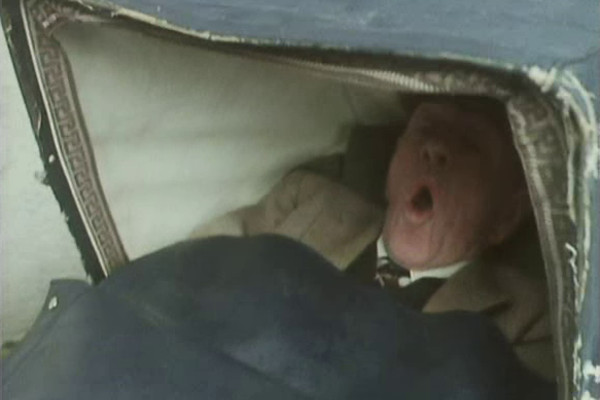
The real pleasure of watching series seven is that, whether good or bad, most of the episodes are slightly different, as if Roy Clarke wanted to experiment again. A failed experiment can be more refreshing than successful by-the-numbers, and so most of the episodes get by on haphazard innovation.
The White Man's Grave is the one that most steers towards formula, with constant visits to the cafe, and Compo's Nora Batty routines. There's not actually a lot of sense in the episode, with various illogical events that lead up to Wally Batty going down some steps in a child's pram. While plot logic and motivation should never be the prime concern of a Last of the Summer Wine episode, the need to smuggle Wally in and out from the front of his house is unnecessary when the episode makes pains to establish they can easily go round the back.
While there's some decent smiles here and there, lots of the episode does shift the wife-on-husband physical attacks away from "traditional Northern humour" and more towards "domestic violence". Jane Freeman's Ivy launches an unseen assault on Sid that's so savage she makes the set wobble while slamming a door. (For more "goof" trivia, then look at the moment where Sallis has the line "cuckoo clock"... Bill Owen can be seen mouthing the line).
But this is a Nora and Wally episode all the way through, with more of Compo's sex pest routines. Despite the seemingly limited comic potential of a scruffy man trying to force himself on a woman with curlers, it was deemed so popular that a novelty single, "Nora Batty's Stockings", was released a month after series seven finished airing, and got to a mighty No. 97 on the singles chart. Much better was the B-Side, featuring Owen delivering a poem about ageing, set to a reworking of the theme tune.
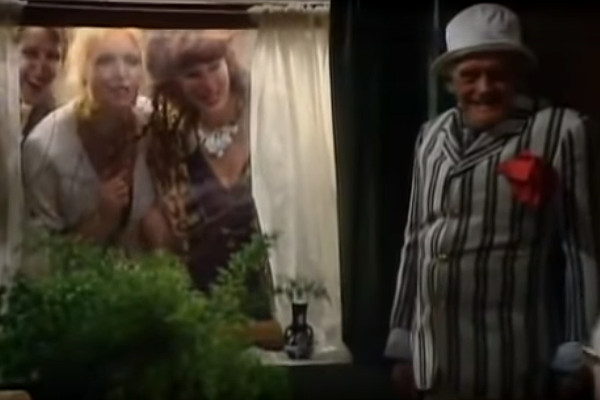
"The Funny Side of Christmas" was an 80 minute special that aired on December 27th 1982, a collection of sketches somewhat drearily linked together by Frank Muir. Roy Clarke had two scripts in the special, thanks to an 8 minute edition of Open All Hours, and other shows were featured, including Only Fools and Horses, Sorry!, Butterflies and a reprise of The Fall and Rise of Reginald Perrin.
The Last of the Summer Wine segment, which lasts a little over six minutes (6'17m if you really want to know) is affable enough, but does seem like two different episodes bolted together. It opens with Clegg and Foggy not wanting to celebrate Christmas, which makes it a nice tie-in to the Christmas special where they attempted to get away and had to come back. Yet it ends with Compo bringing back three young women who, for some inexplicable reason, want to give the three old men some Christmas cheer.
Bill Owen plays to the gallery, and it's all a bit unlikely, though is far from the worst of the ten sketches featured in the special... probably the worst offender being Yes Minister delivering a two-minute script that was clearly written in the same amount of time, a half-hearted effort that reeks of "it'll do."
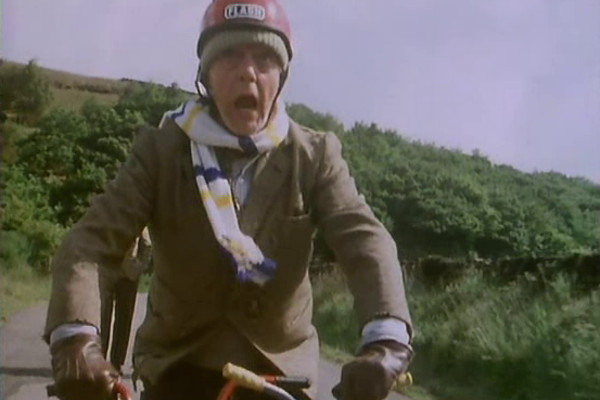
There's a strange bit at the start of this episode where one of the great "challenge the viewers by concealing the actors in long shot" openings has Compo appearing and disappearing as he speaks to Clegg and Foggy. It plays with the camera rather than the characters, as there's no real logistical way Compo could change positions without them seeing him, so a left-field sense of direction instead becomes almost breaking the fourth wall. Owen continues the episode worryingly close to breaking that wall, giving one of his more "playing to the gallery" performances throughout.
While many of the Compo moments are tired, Clarke gives Foggy some attention again this series, including the return of his "stare into space" habit (White Man's Grave) and, here, some amusing lines of bluster: "The last person who crept up behind me like that is lying in an unmarked grave somewhere in the jungle."/"Marriage was never an option for me.. I knew from an early age that I was dedicated to the way of the Samurai." Brian Wilde is always a class act, and delivers each line to full effect.
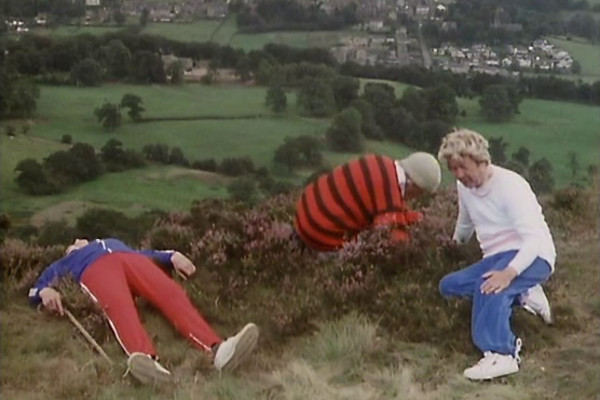
This episode is, perhaps, ranked too highly. As previously stated, series seven tries a lot that's new, and so a fair few of these episodes are highly rated because they're a break from the status quo, rather than perhaps being particularly good in and of themselves.
The notion of health farms sees Compo with a squeaky bike and a massive sandwich, and there's some "funny costume" humour towards the end, but there's also moments to breathe. Roy Clarke gives the characters chance to talk about philosophy with one another, discussing spirits, the afterlife and their beliefs. It's one of the things that Clarke does best, something more unique to the series, and far more appealing than the sitcom characters that populate the health farm.
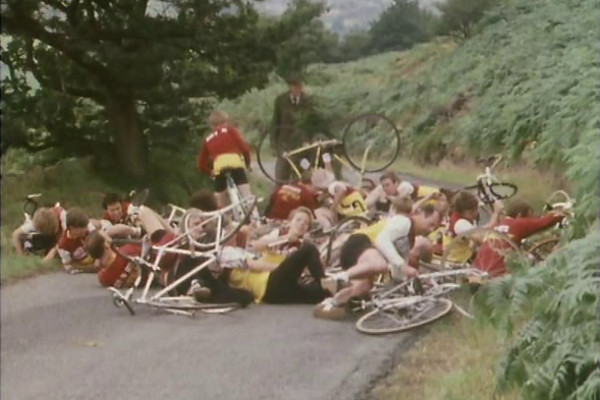
As noted, the studio audience are muted throughout several points of episodes 4 and 5, and that trend continues here, with Jane Freeman (Ivy) having to struggle with more dead-laugh areas, and Joe Gladwin getting deathly silence from the crowd. In fairness, the lines Gladwin is given to say are some of the more surreal in the programme, with Wally saying he'll train his pigeon to call the RAC. When Clegg asks if it'll have 10p in its beak, Wally replies "No, it'll reverse the charges." It's a silly, bizarre joke that can raise a chuckle, but is perhaps too left-field for the traditional LOSTW to really hit its target.
Although this was the last of the series, viewers without long memories may not have realised it: a repeat of Whoops aired just the following week. In fact, the BBC were so reliant on repeats at the time that series seven had aired again before the year was out.
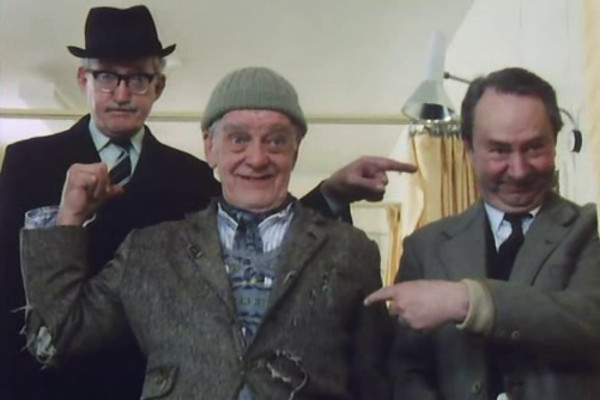
A pitch-black special, there's more than an air of the macabre as Sid muses over the nature of life after death... John Comer was so ill from throat cancer his voice was dubbed by actor Tony Melody, and he died in February 1984, aged just 59. Although Sid and Ivy can be something of a repetitive presence in the series, with Roy Clarke often using them to tread narrative water, this is a fine send-off, the clearly ill actor showing his commitment by making one last appearance.
An 88 minute special that aired in December 1983, it's the first of three specials that were screened without audience laughter, in effect a full feature film based on Roy Clarke's 1974 Last of the Summer Wine novel. Although the lack of audience laughter does draw attention to just how twee and overbearing Ronnie Hazlehurst's incidental music has become at this stage, it produces better, less "showy" performances from the cast.
Using the different medium to tell his tale, Clarke gives viewers the chance to hear the inner monologues of four characters (Sam, Clegg, Sid and Foggy), which are slightly disappointing in that they aren't widely different from their openly expressed thoughts and attitudes. Foggy's internal thoughts are just as pompous as his external ones, whereas the chance was missed to flag up just how much of his persona is a front.
As discussed with series two's Some Enchanted Evening, the show has a questionable line in showing no qualms over affairs. Here they not only tell a window dresser his secret affair is safe with them, but they arrange to get a deeply ill Sam to see his mistress. Things get even bleaker when Sam dies while in his extra-marital bed, and, in a sequence that predates Weekend At Bernie's by over five years, they must smuggle the corpse back into his own house for his wife to find.
It's dark stuff, and one of Roy Clarke's best-ever scripts, full of musings on "impulse trips into the infinite" and the deaths of former schoolfriends in the war. Hazelhurst does have a horrible tendency to "sell" the comedy rather than letting it speak for itself - the recreation of the music from Psycho a particular low point - but it manages to get by in a special that has more depth and subtext than the majority of what came before.
The film also marks Alan JW Bell's return to the series, with his book, From The Director's Chair detailing some of the behind-the-scenes wrangling that led to his reinstatement: "Sydney Lotterby may have successfully succeeded in snatching back the series, but I wasn’t going to let him have the feature-length film without a fight. It was mine: it was I who had persuaded the BBC to commission it, and I couldn’t see why I should step aside to let another Producer make it, no matter how senior he may be. It was another problem for the front office: how can they tell an Executive Producer that he can’t have the coveted Last of the Summer Wine film to make? The answer was found quite simply: have both Producers budget the film. Although the film was quite demanding of time and effort, I said that I could make it in four weeks. Sydney’s estimate was considerably longer than that."